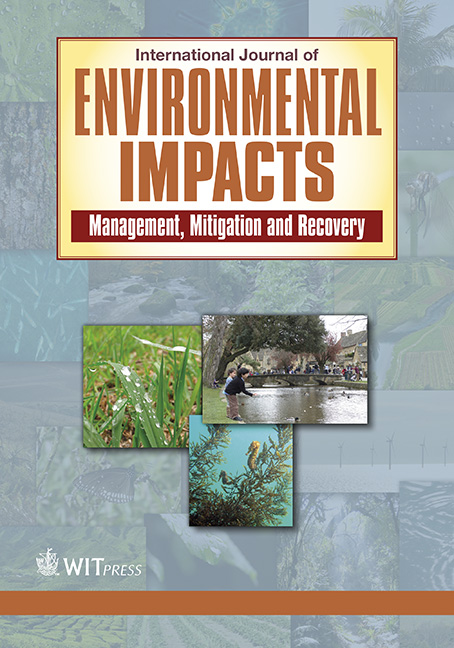Occurrence and degradation of single-use plastic in coastal area
Price
Free (open access)
Volume
Volume 5 (2022), Issue 2
Pages
10
Page Range
105 - 115
Paper DOI
10.2495/EI-V5-N2-105-115
Copyright
WIT Press
Author(s)
Kaire Torn, Tiia Möller-Raid & Georg Martin
Abstract
Increasing trend of littering of coastal areas and marine environment is recognized globally. In the European Union, 80–85% of marine litter is plastic, among which single-use plastic (SUP) products represent 50%. The study confirmed that the primary source of sup items on urban beaches of Tallinn, Estonia, is direct littering by beach visitors. The level of littering is highly dependent on the intensity of beach use. In total, 1492 macrolitter items per 100m of beach length were registered at urban beach Russalka, while remarkably lower values were registered at semi-urban beach Kakumäe. The most frequently found SUP items at urban beach were cigarette butts, followed by various packages and sweet wrappers. To assess how quickly the fragmentation of selected SUP products takes place in the natural environment, field experiments were carried out. The degradation of disposable paper plates, biodegradable plates and biodegradable waste bags was studied in two terrestrial (open-air vs. buried in soil) and two marine (submerged in seawater above sediment vs. buried in sediment) treatments. The experiment showed that the degradation of biodegradable SUP items is limited in natural environment and varied depending on the character of the material of the product and the environment it was exposed to. The studied biodegradable plates had the fastest degradation rate (4 months) and the loss of material was the highest during the first months. In open-air conditions, the degradation process was the slowest. For the biodegradable plastic bags, noticeable decomposition took place only in the seawater above sediment; in other environments, the degradation was slower. Therefore, to decrease the impact of plastic, instead of using biodegradable material, the guidance of consumers toward reducing, reusing and recycling of plastic should be promoted.
Keywords
Baltic Sea, beach litter, biodegradable products, discarded macrolitter, disposable plastic, marine debris, plastic pollution.




